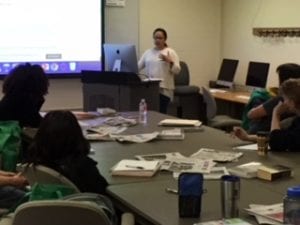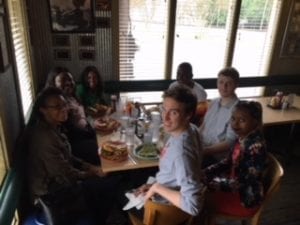“The most dangerous place to be a journalist in America is at a protest.” That was the conclusion of the watchdog organization U.S. Press Freedom Tracker, as well as of two writers for the Columbia Journalism Review, in 2017. The hazards are not new, however. Covering political activism has always involved considerable personal risk, and no one knew that better than the men and women who reported on and wrote about the civil rights movement in the 1950s and 1960s, when they faced regular harassment, intimidation, and violence. L. Alex Wilson, editor of the Tri-State Defender, was viciously attacked at Little Rock Central High School in 1957 and died three years later. Paul Guihard, of Agence France Press, was murdered while covering the 1962 riot at the University of Mississippi.
Yet, like activism itself, journalists who pay attention to such issues have always been in the minority, blinded by majority obliviousness or callousness, cowed by conservative voices in the newsroom, or pressured by antsy advertisers. That was the impetus for creating a course to directly address the need for information about injustice and inequality.

All ten students who took Reporting Social Justice in the spring of 2018 had completed Dr. Aram Goudsouzian’s Memphis and the Movement class the previous semester, so they were already steeped in the history of the city’s race relations. Our curriculum was not just confined to racial justice, though. I brought in speakers to talk about poverty, educational inequity, environmental discrimination, gender and sexuality bias. We took a field trip to OutMemphis, and one of our textbooks was Randy Shilts’ bestselling classic And the Band Played On, about the AIDS epidemic. Students’ first projects accordingly spanned the gamut of social justice issues—from economic burdens and the wealth gap to criminal justice disparities.
But the special focus of the course was journalism about the movement for racial justice in Memphis. The first book we read as a class was Gene Roberts and Hank Klibanoff’s Pulitzer Prize-winning book, The Race Beat: The Press, the Civil Rights Struggle, and the Awakening of a Nation. Local MLK50 columnist Wendi Thomas co-taught the course twice, focusing on discrepancies in news coverage about African-Americans in Memphis, especially poor people of color.

The course’s capstone project was interviews with activists from different decades—from people who marched with King to those who fought to remove Confederate statues in 2017. Students were paired up in teams to interview more than a dozen activists. We chose to do the interviews in an oral-history style, meaning they were longer (about an hour), less often interrupted, and more free-form than is typically the case with a journalistic interview. Our main goal was to get these individuals to talk at length, to share their memories, to remember what they could. Together with the interviews we conducted during the summer, these in-depth video sources will be given to and archived at both the McWherter Library’s special collections and at the National Civil Rights Museum, where historians and other scholars looking to understand race relations in the city of Memphis will have a permanent multimedia resource they draw on for years.
The other purpose for the interviews is to use excerpts in a documentary and on a website we will be creating this fall. The latter will be interactive, allowing residents to make comments, share stories, ask questions, and otherwise participate in this endeavor. We see this as an ongoing story with different audiences. So all three outlets—the archive, the film, the website—are a means to show to and share with the community a unique and important story: activism for racial justice in Memphis, Tennessee.
By Joseph Hayden, PhD, Department of Journalism and Strategic Media, The University of Memphis